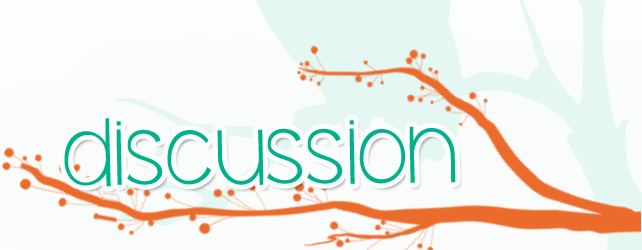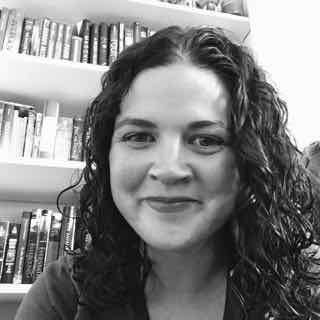I like to read classic novels. Anything that’s 100 years old that is still being read is a classic in my mind but I know not everyone labels books that way. I was reading The Scarlet Pimpernel a few months ago and I came across some blatant racism against Jews that made me very uncomfortable. A better description would be disturbed and deeply sad. I know this is me reading it from a modern perspective since I know how history has treated Jews and many other minorities. It’s still kind of shocking to come across any racism or discrimination and have it be presented as normal. I almost wanted to put the book down. Here’s my dilemma and I wanted to know what you thought.
- Is it fair to judge this old novel by my modern standards?
- If I just let it slide because it’s old, is there a point where the discrimination in classic novels has passed the point of teaching me something and is just disturbing to me and therefore not worth reading?
- Is reading about racism in older books a teaching tool for me or my kids to not think that way about people? Or am I just justifying reading something I don’t agree with?
I posted this discussion mostly because I don’t know for sure how I feel about all those questions yet. I don’t know that it’s fair to judge a classic by my modern standards but I am concerned about reading classics that are discriminatory, especially if it’s not blatant like in The Scarlet Pimpernel. I think reading affects who we are and how we think. Maybe I’m being paranoid, but I think reading enough books that had racism in it would eventually desensitize me to it. But maybe I could learn something from these old novels about how not to be racist. I don’t know!!
How do you react when you come across discrimination, sexism, racissm etc in classic or old novels? Have you ever read a classic novel that was so racist/sexist/discriminatory that you couldn’t finish it?








 My name is Jessica. I love to read Young Adult and classic literature. I’ve been a book blogger for six years and I haven’t gotten tired of it yet. I’m a very curious reader. Writing about all the questions and thoughts I had while reading a book is the best hobby ever.
My name is Jessica. I love to read Young Adult and classic literature. I’ve been a book blogger for six years and I haven’t gotten tired of it yet. I’m a very curious reader. Writing about all the questions and thoughts I had while reading a book is the best hobby ever.
When I was going through my bloglovin feed, and say the title of your post, I immediately thought of The Scarlet Pimpernel, and then when I read your post, that’s exactly what you are talking about.
I read TSP years after I saw the Anthony Andrews movie (which I adore). And I felt the same way you did. the racism made me so uncomfortable. It definitely affected my overall feelings about the book. But at the same time, this book was written so long ago, and we live in a different world now (thank goodness!).
I do think that it’s a great teaching tool. And I also think it’s important to keep those prejudices in mind no matter what classic you might be reading. But I also don’t have a definite answer because I’m also not sure how I feel.
That’s a good point – I think keeping in mind that prejudices can be hidden and treated as normal can be an awesome teaching tool for us. So much racism and discrimination today is not blatant and obvious. Thanks for the thoughtful comment!
I’ve read a few things, mostly classic short stories, with racism that’s present as normal in it. And, I chose not to read The Adventures of Huckleberry Finn in high school because of the use of the N word. It’s hard because it was normal back then, but that doesn’t mean it was right at all. I struggle with it because I don’t want to read thing like that. And, at the same time, I know The Adventures of Huckleberry Finn is a great book and I find myself wondering if I made the right choice and if I should read it, mostly because I don’t agree with censorship or banning books and I know these books have been censored/banned because of this very thing.
I think as long as we use it as a learning tool, then it’s okay. But, we have to make sure we don’t let it desensitize us. We must always abhor it. But, is that easier said than done while reading a book that presents it as the norm? I don’t know.
Huckleberry Finn is an interesting example. I remember reading somewhere that it was first banned when it came out because it showed empathy towards slaves at the end. I will not read books because of strong language so I totally understand not reading it for that reason.
I totally agree with being super careful about what you read because it can be very easy to be desensitized to things.
It is hard to read history like this. It even happens in Disney films. While Disney has tried to edit it out.. we all know it was still there (Song of the South for example). I think by reading about it we can become more educated with the times. I want to be able to talk to people about the history of the civil rights. I want to understand more about the times when my grandparents lived. I am married to someone who is black so I think about this all the time. I think we need to just know what our values are and NOT forget them. My grandmother recently went to a church event at a new church she was attending where someone came dressed in black face. She went and spoke to the preacher about it who said it was all “in fun.” Needless to say my grandmother did speak to that woman later and told her there was no way she could bring her granddaughter (me) and her grandson (my husband) to that church knowing people think it’s OK. She quit going there and is now trying a new church. I think if these are our values reading a book about racism can in no way change our core values. Great post!
Disney’s Peter Pan is a movie I loved as a kid but it wasn’t until I got older that I realized it’s quite racist towards Native Americans.
The best way to keep discrimination alive is to dismiss it as not a big deal or say it’s just for fun. I’m sorry you guys had that experience.
PS the black face was for like costume night or something.
Kudos for bringing this up! I think it is important for us to read these stories so we can understand how deeply racism and prejudices were embedded into society. And unfortunately they still are in certain communities all over the world. It’s a good thing that it makes us uncomfortable because that speaks of how we sympathize with those who have been oppressed, abused, murdered. We may not completely understand, but we shouldn’t discount our ability to be sympathetic, in some cases even empathetic. Learning about racism in history class doesn’t quite give us the understanding that reading it in literature does. History is based more on facts. Literature is about invoking feelings.
We read The Diary of Anne Frank in my tenth grade English class and I will never forget how deeply that story affected me. It is one of my all time favorite books. Then, we ventured into Helen Keller and I was just as moved by her story. It’s not just racism, but any form of prejudice that should be remembered. Stories such as these help enlighten us on the differences in people. In the past being different was seen as a bad thing, whether it be a different skin color, religion, someone deaf and blind, etc. Today the vast majority of us do not hold negative opinions of many of these things. I think it is key to remember that we are different, but that doesn’t mean it’s a bad thing, just fact.
In the cases where racism and prejudices present themselves from a protagonist that we like, or that we are supposed to at least try to understand, it is uncomfortable. It’s a struggle to separate those views from the rest of the character’s personality. But, this is also a great example that people don’t have to be pure evil to possess negative attributes. We tend to see people we admire through a clouded lens, but we should always remember that nobody is perfect, that it’s okay to disagree. It’s okay to not like some things about someone you generally have a fondness for.
I admit that I haven’t read Huckleberry Finn, or if I did as a child I don’t remember it. But I have at least seen the movie adaptation starring Elijah Wood, and the takeaway for me was that racism was deeply engrained in Huck, but in the end, after being away from that kind of environment, he was able to see Jim as a fellow person. He recognized the wrongness of treating Jim as sub-human. Of course, the movie adaptation could have changed the story completely, so that may not be the case for the book.
There’s that familiar phrase: history repeats itself. We should keep these stories alive, both fictitious and non-fictional, lest we forget.
I’m actually reading Helen Keller right now. I was surprised at the lack of accommodation for her to even get an education. She didn’t have access to textbooks, lectures most of the time, or a way to really speak with her professors. That’s such a good point – we don’t see being different as a bad thing anymore and a lot of the time we try to help and accommodate those who need it. I think if Helen Keller lived today her education would have been a lot different -in a good way.
Thank you for such an insightful comment. I loved reading it.
– See more at: http://www.booksatruestory.com/2014/07/01/discussion/#comment-17162
I’m actually reading Helen Keller right now. I was surprised at the lack of accommodation for her to even get an education. She didn’t have access to textbooks, lectures most of the time, or a way to really speak with her professors. That’s such a good point – we don’t see being different as a bad thing anymore and a lot of the time we try to help and accommodate those who need it. I think if Helen Keller lived today her education would have been a lot different -in a good way.
Thank you for such an insightful comment. I loved reading it.
Racism in books makes me very uncomfortable. I really don’t like to see it and it hurts me to the core. If I know that an author is racist – no way I’m reading anything by him or her. I can’t dismiss things because it happened a lot back in the day. Thank God there were people who didn’t accept this back then and chose to fight against it.